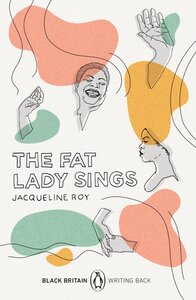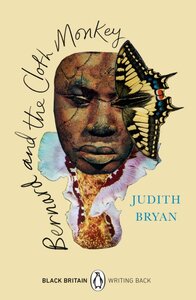This is another title from Bernardine Evaristo’s Black Britain: Writing Back series. Jacqueline Roy has written a number of children’s books. The Fat Lady Sings (published in 2000) was her first novel for adults – her second will be published later this month.
The Fat Lady Sings revolves around two Caribbean women living in a psychiatric ward in 1990s London. Gloria is in her fifties, a naturally exuberant presence: her mental health was assessed when her neighbours complained about her singing. It’s as though life has conspired to prevent Gloria from living it on her own terms. She has been ostracised by the family of her partner, Josie. When talking to police at the scene of the train crash that killed Josie, Gloria only felt able to describe herself as Josie’s friend. It’s a similar story on the ward: Gloria is told to keep her voice down, and the food is bland English fare.
Gloria has been in the unit for some months. Roy’s other protagonist is a new arrival: twentysomething Merle, who’s quiet and afraid of the voices in her head. Where Gloria’s narrative viewpoint is continuous, Merle’s is fragmented and subject to interruptions. But over the course of the novel, we see both women’s pasts, and they try to find a future for themselves.
The Fat Lady Sings is written in a way that brings the reader close to both its protagonists. We have to piece together their lives, just as they are doing. But there are moments of humour and light along the way – ultimately this is a tale of survival.
Published by Penguin.



Recent Comments